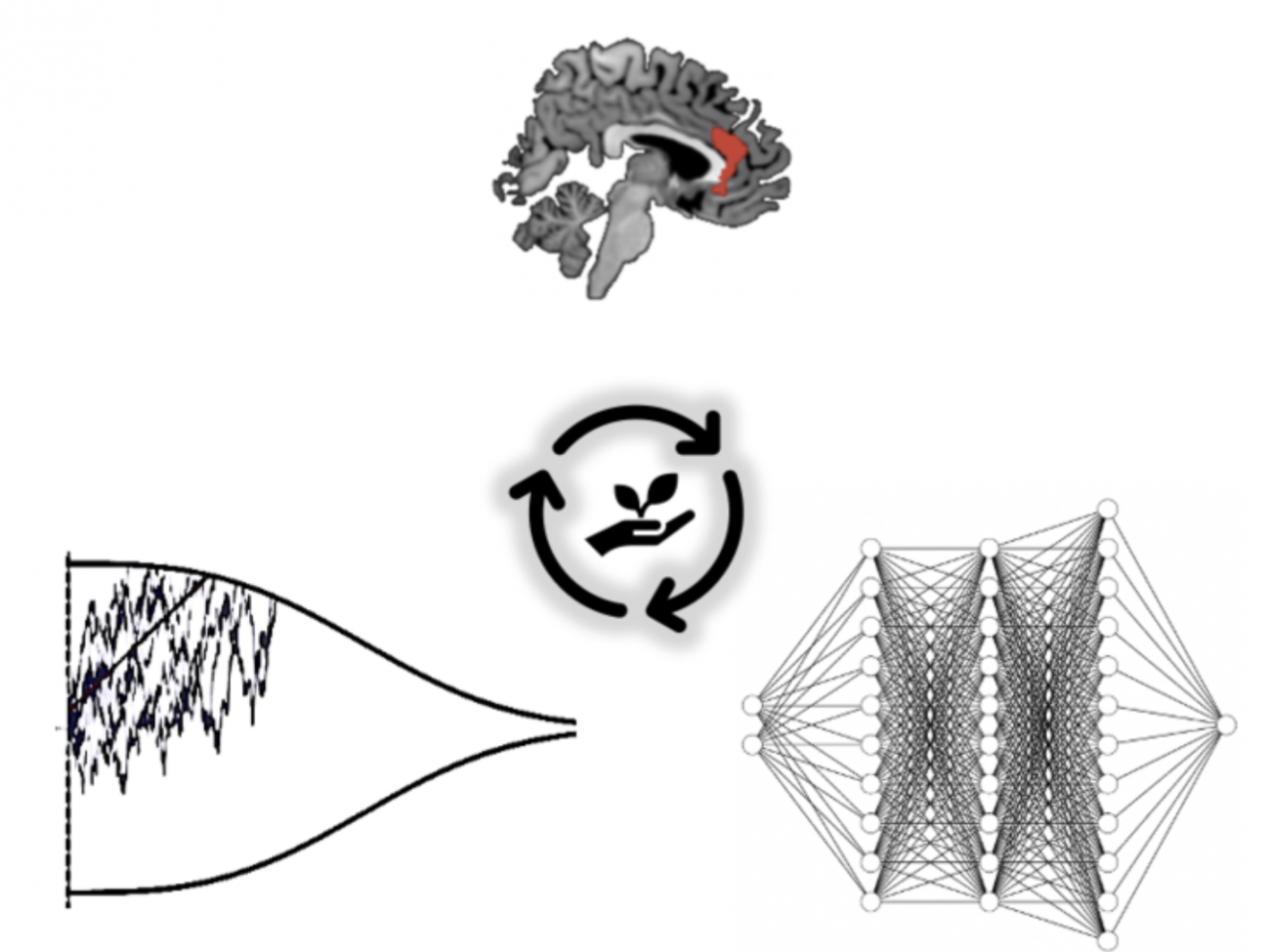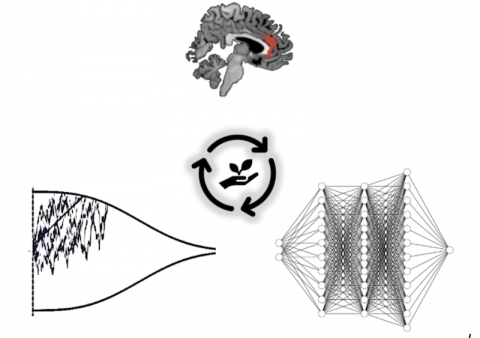Which neural and cognitive processes drive alterations in decision making and learning? This project offers an easy-to-use python-based software toolbox, which allows scientists from cognitive neuroscientists to clinical researchers to rigorously characterize interpretable mechanisms that can explain changes in observable behaviors and their neural correlates in healthy and clinical populations. The package combines the strength of low-dimensional computational models, which allow highly interpretable characterizations of decision processes when fit to experimental data, with the ability to incorporate a large spectrum of the measurement apparatus available to cognitive neuroscientists (fMRI, EEG, eye-tracking, etc.).
Based on recent research advances in likelihood-free inference, our toolbox enables efficient estimation for a very large class of computational models in cognitive neuroscience. The package, dubbed HSSM, is meant as a much more general and computationally efficient successor to the highly successful HDDM python package for fitting drift diffusion models of decision making.
The first version of this package has now been released and can be accessed here.
Potential Impact
The original Python toolbox for hierarchical Bayesian parameter estimation of the Drift Diffusion Model (HDDM), which was developed in our lab to link brain / behavioral data (in health and in disease), is widely used (more than 700 publications have used it and the userbase contributes to a very active listserv). It has shown great promise in aiding the characterization and diagnosis of specific mental health and neurological conditions, where based on the ability of precise quantitative models to map disease markers into low dimensional interpretable parameter spaces. Indeed, superior diagnostic classification of such conditions has repeatedly been shown using HDDM compared to using raw behavioral or brain data (e.g., Pedersen et al., 2021; Wiecki et al, 2015). However, while HDDM focused on a single (albeit popular) drift diffusion model, the new HSSM toolbox enables users to define any arbitrary model from brain to behavioral data (choices and response time distributions, including how these might evolve over learning) in a user-friendly but rigorous way. It leverages modern gradient- based Markov Chain Monte Carlo techniques and a powerful integrated Regression backend. Thus, it promises to substantially enhance discovery of more realistic brain dynamics underlying a variety of cognitive and behavioral phenomena, as well as how they are altered in disorders of brain function.
Resources
Project Lead (PI)
- Michael Frank, PI
- Alex Fengler, postdoc
Project Members
- Aisulu Omar, software engineer
- Paul Xu, software engineer
Media

